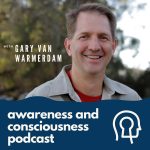
The critical voice in your head telling you whether you are succeeding or failing at things is actually pretty stupid. It sounds smart, acts confident, and pretends to be an expert. However, it hasn’t actually done any of the things it is criticizing you about. It has no expertise in learning the skill, or in coaching and guiding you to learning a skill. Sometimes it is just a fraud and you are better off not listening to it.
It behaves as a biased scorekeeper, always marking you down. It doesn’t apply how we really learn a skill, which is through a lot of trial and error repetition. It somehow expects perfection on the first try, even though that is not in reality how we get better. When you become aware of it’s impact you discover that it isn’t actually making you better. The result is that it acts more as a saboteur to demotivate you to continue learning and practicing. Your counter move to it’s antics is awareness and that will allow you to not believe what it says.
